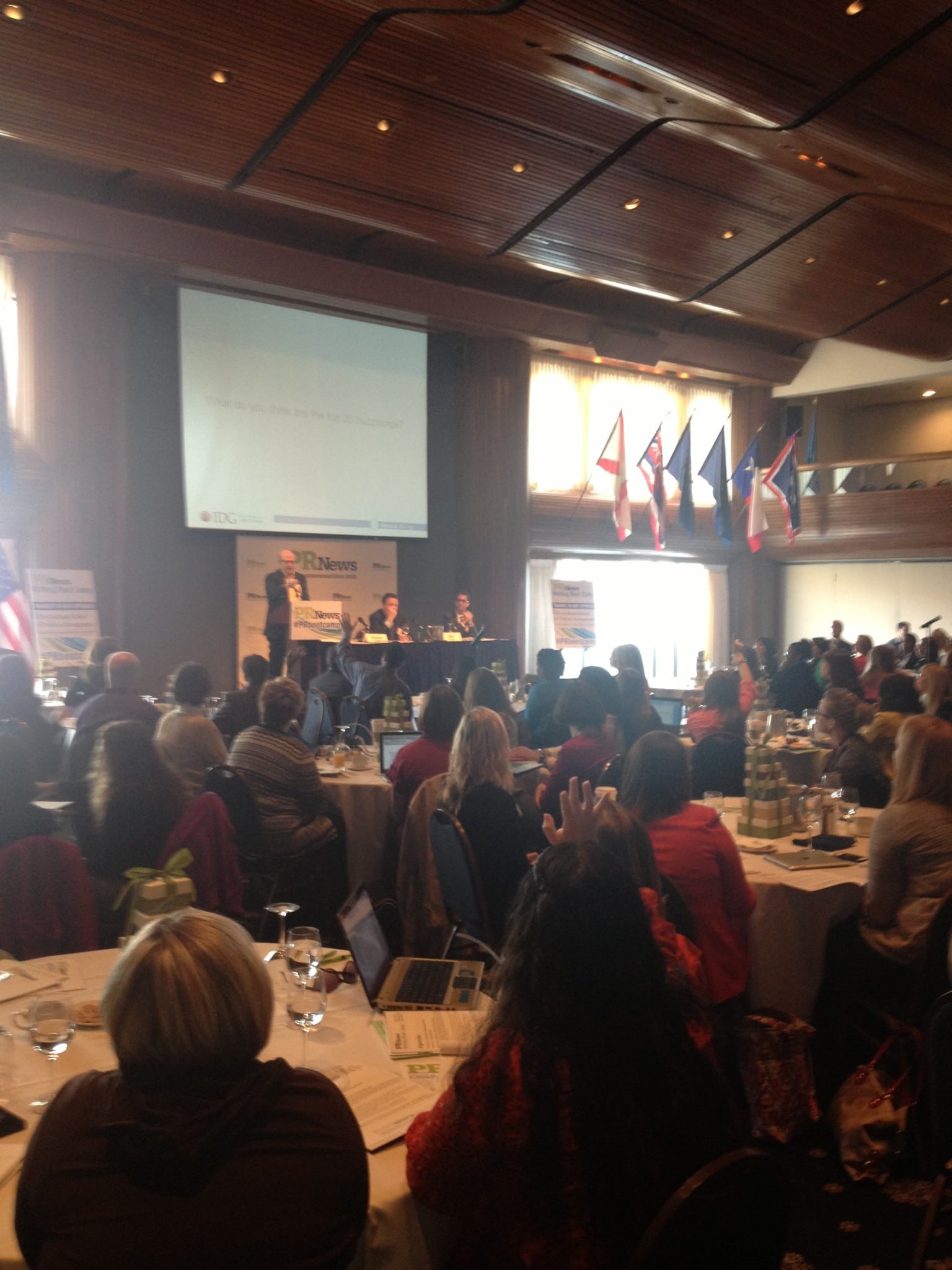
If you want to waste your audience’s time, you should focus on how ‘leading’ and ‘innovative’ your organization is. You should breathe your own exhaust and write very long sentences. But if you want to capture your readers’ attention, do the opposite. Such was the advice at today’s opening session at the PR News Writing Boot Camp at The National Press Club.
“Don’t fall into the trap of talking about yourself,” says Dan Ronan, senior director of communications at the American Bus Association. Ronan, formerly a writer for CNN, advises communicators to follow the 10-second goal when writing: make sure your sentence is 10 seconds or less when it’s read out loud.
To hone your writing skills so that the media or your customers take notice, think in terms of headline writing: what is your key message and how can you succinctly capture that message? You should be able to do that in 15 words or fewer.
Additionally, video and visuals, such as infographics, are key to helping reporters do their jobs better. When setting out to write an article, press release or other public communication, be sure to ask these questions first:
- Who I am writing for?
- Who, what, where, when and why?
- Who is my audience?
- Where is my material being published?
- When is it being published?
- Why is it being published?
Avoiding buzzwords is key to increasing credibility in your written communications, says Howard Sholkin, director of communications and marketing programs with IDG Global Solutions.
To get past the jargon meter, Sholkin offered up these words to avoid in press releases and other communications:
- Innovative
- Innovator
- Leader
- Leading
- Sustainable
- Best
- Solution
- Top
- Largest
- Extensive
- Exclusive
- Extensive
- Fastest
- Real-time
- Dynamic
- Innovator
- Provider
The hundreds of communicators in the room at the PR News Boot Camp today are a testament to the importance of attaining good writing skills and always honing them. “Being a strong writer and communicator is great for your career,” says Ronan.
And starting a sentence with “And” is OK, too. Some rules are meant to be broken.
Follow Diane: @dianeschwartz.

Hard not to use the word innovative! Some of my clients are actually curing diseases =].
Sometimes it is hard to write well when people in the C-suite expect to see the words above, along with as many superlatives as possible. Many writers would be judged as poor writers by their bosses if they left these out.
Excellent advice. I would like to add these over-used phrases: Passionate. As in, We are passionate about innovating …
Another cliche to avoid at all costs: Transparency. As in, We advocate transparency …
And my favorite yawn-inducer: Push the envelope.
All of the above were fresh about 10 years ago (or more).
Diane Schwartz is so right. Excessive rhetoric puts people to sleep.